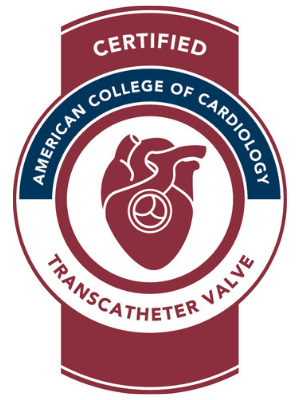Heart
- Heart Home
- Adult Congenital Heart Program
- Advanced Heart Failure
- Cardiac Imaging
- Cardiac Rehabilitation
- Cardiac Wellness and Management Clinics
- Cardiothoracic Surgery
- Chest Pain and Heart Attack Care
- Diagnostic Testing and Screening
- Heart Valve Disease
- High Blood Pressure
- Interventional Cardiology
- Jackson Heart Study
- Patient Support Groups
- Vascular and Endovascular Surgery
Heart Valve Disease

The structural heart program at University heart, part of the University of Mississippi Medical Center, offers state-of-the-art diagnosis and treatment of heart valve disease. Our team includes surgeons, cardiologists, anesthesiologists, and radiologists who work closely together to provide comprehensive care backed by the state's only academic medical center.
About heart valve disease
The heart is made up of four valves: the tricuspid, pulmonary, mitral, and aortic valves. These valves allow blood flow into or out of the heart's four chambers. Heart valve disease occurs when one or more of these valves are not working properly.
Initial assessment
Patients will receive a full assessment on their first visit. Any tests previously taken will be reviewed in order to tailor the assessment to each patient and to avoid repeated tests. The heart valve team at UMMC will use test results to determine and recommend the best possible treatment option for each patient's unique needs.
Depending on previous testing, patients may undergo additional screenings such as:
- Lab work
- An EKG (measures electrical activity of the heart)
- Echocardiogram (ultrasound of the heart)
- CAT scan (uses x-ray and computer imaging to create 3-D images of the heart's structure)
UMMC offers state-of-the-art digital imaging services, including:
- CT with arteriography and 3-D reconstruction
- Cardiac MRI with 3-D reconstruction
- Computer-assisted operative planning with cardiovascular radiologists
- Intravascular ultrasound (IVUS)
- Intraoperative transesophageal echocardiograph
- Newly constructed University Heart with cardiac catheterization labs featuring the latest technology
Treatments and procedures
Treatment of valve disease depends on the type and severity of the disease. The heart valve team at UMMC specializes in surgical and non-surgical approaches to valve disease and performs a range of procedures, including:
- Valve repair surgery
- Valve replacement surgery
- Mitral and aortic valvuloplasty for stenosis (widening a narrowed heart valve opening)
- Minimally invasive replacement of aortic valves (transcatheter aortic valve replacement, also known as TAVR)
TAVR at UMMC
Patients who have severe, symptomatic aortic stenosis and who may be at a higher risk for traditional open heart surgery may be candidates for TAVR. TAVR is a less-invasive procedure that allows a new valve to be inserted into the diseased aortic valve through a small catheter placed in the groin or through a small incision in the chest.
UMMC has a dedicated TAVR team consisting of cardiologists, cardiothoracic surgeons, echocardiographers, anesthesiologists, and the surgical and cardiac cath lab staff. The TAVR team conducts a thorough evaluation to determine the best treatment option for each patient.
- Learn more about TAVR at NewHeartValve.com (External Site).
Hybrid operating rooms
Our hybrid operating rooms are equipped for both traditional open surgery and endovascular treatments. These rooms feature digital imaging capabilities, allowing our multi-disciplinary team to provide open surgery, endovascular surgery, or a combination of both.
Contact us
We work closely with patients and their physicians to determine the most appropriate treatment and continued care for heart valve disease.
Health care professionals
To refer a patient to the UMMC structural and valvular heart disease program:
- Call: (601) 984-4567
- Fax: (601) 984-2FAX or (601) 984-2329
- Email: ACHD-valve@umc.edu
- Submit an online referral.
Patients
We evaluate patient records and accept appropriate self-referrals.
- Request an appointment by calling (601) 984-4567.
- Interactive Campus Map


